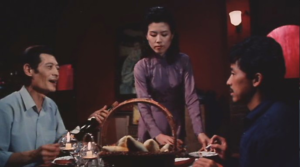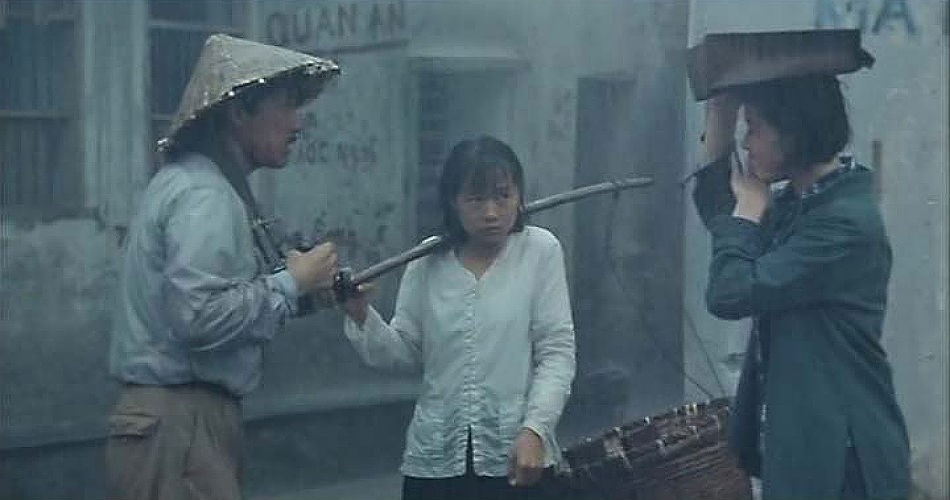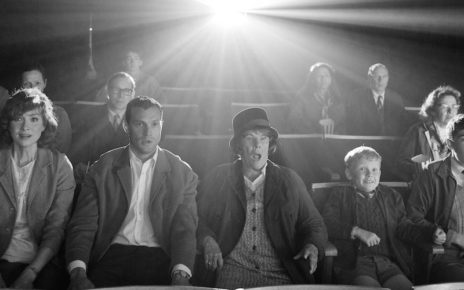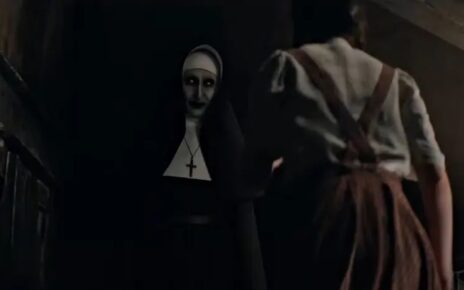We really f***ed up Vietnam. We Americans, that is. Did we win the Vietnam War? Oh no. Americans can’t make that claim even a little. But I could also argue that Vietnam didn’t exactly win the war, either. When victory includes half the population looking for refugee exits and the other half scrounging land-mine riddled garbage dumps for scraps, that doesn’t really sound like victory to me. The would-be refugees are called Boat People; they were desperate to leave post-war Vietnam for Hong Kong, Taiwan, or Loompaland; so long as it wasn’t Vietnam, it had to be better.
The protagonist here is neither Vietnamese, nor American, but Japanese journalist Shiomi Akutagawa (George Lam). He’s got a visa to show the world how Vietnam looks after the war, and the propaganda department “guides” him to a sheltered enclave of prosperity and singing school children.
Americans should be very familiar with this tactic by now; personally, I cannot summon the word “propaganda” without thinking about that sickening virtue-signal with Trump holding a bible upside-down after tear-gassing peaceful protestors to pave his path to a church he never attends. Propaganda is a lot easier (but clearly not impossible) in countries without a free press or a free people.
Spying some things that ain’t right (like a journalist being beaten up over taking photographs), Shiomi becomes dissatisfied with the “show me” part of his visit and goes rogue – first, he befriends a local family living in a glorified shed, and then he follows their adventures to the forbidden parts of the country.
I’d describe more, but I feel like everything I say from here is a spoiler. This is an entire set of people in survival mode. Their country has been ripped apart and the new government is so paranoid for a sequel that  freedom and opportunity are dirty words. Small children troll garbage dumps for treasures while mom works as a prostitute. It’s impossible not to get sucked in and we find ourselves living as Shiomi does – wanting to keep a professional distance, yet becoming more and more sympathetic as time passes. Is he going to keep being a journalist or is he going to help this family become Boat People?
freedom and opportunity are dirty words. Small children troll garbage dumps for treasures while mom works as a prostitute. It’s impossible not to get sucked in and we find ourselves living as Shiomi does – wanting to keep a professional distance, yet becoming more and more sympathetic as time passes. Is he going to keep being a journalist or is he going to help this family become Boat People?
Boat People was released in 1982 and I have no idea how it went over at the time in the US, China, Vietnam, etc. The film isn’t for the faint of heart or stomach and –given how tame Chinese films tend to be- I’m, quite frankly, surprised by how graphic and hard-hitting this film is given its origin. My guess is PRC let it be because it seemed like an anti-Vietnam film (of which, they would have no problem). As an American, I find it impossible not to look at this film and cringe: this is what our nation did to these people. There are almost no Americans in the film and, yet, Americans assume large culpability for how the Vietnamese people lived after the war, a war waged for very, very poor reasons. I didn’t know who Ann Hui was before this film, of which I am a tad ashamed. This is a superior and uncompromising work from an accomplished filmmaker.
Post-war Vietnam wasn’t fun
Civility at the point of a gun
This place is a mess
See: pool, cess-
Imagine if the United States had won
Rated R, 109 Minutes
Director: Ann Hui
Writer: Kang Chien Chiu
Genre: Films that are so hard-hitting they can be mistaken for propaganda
Type of being most likely to enjoy this film: Historians
Type of being least likely to enjoy this film: The post-war Vietnamese government



